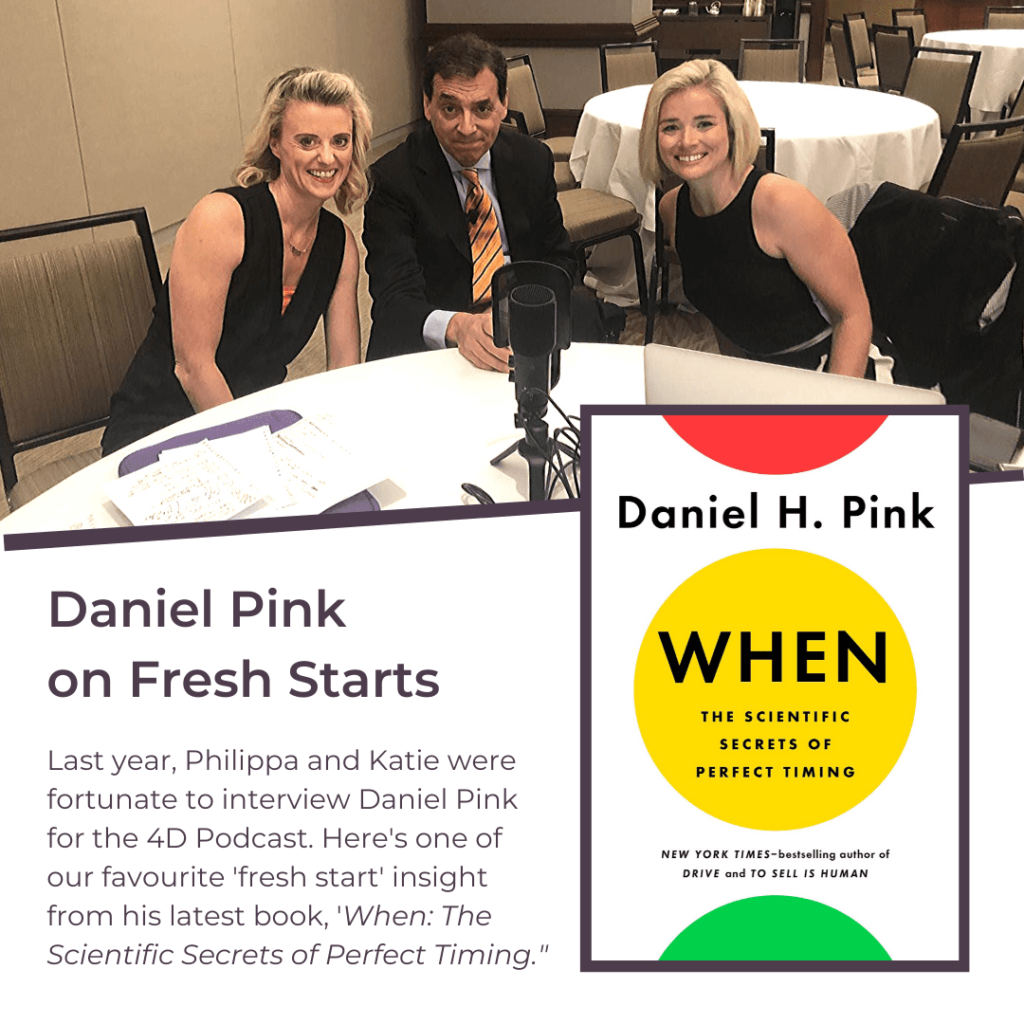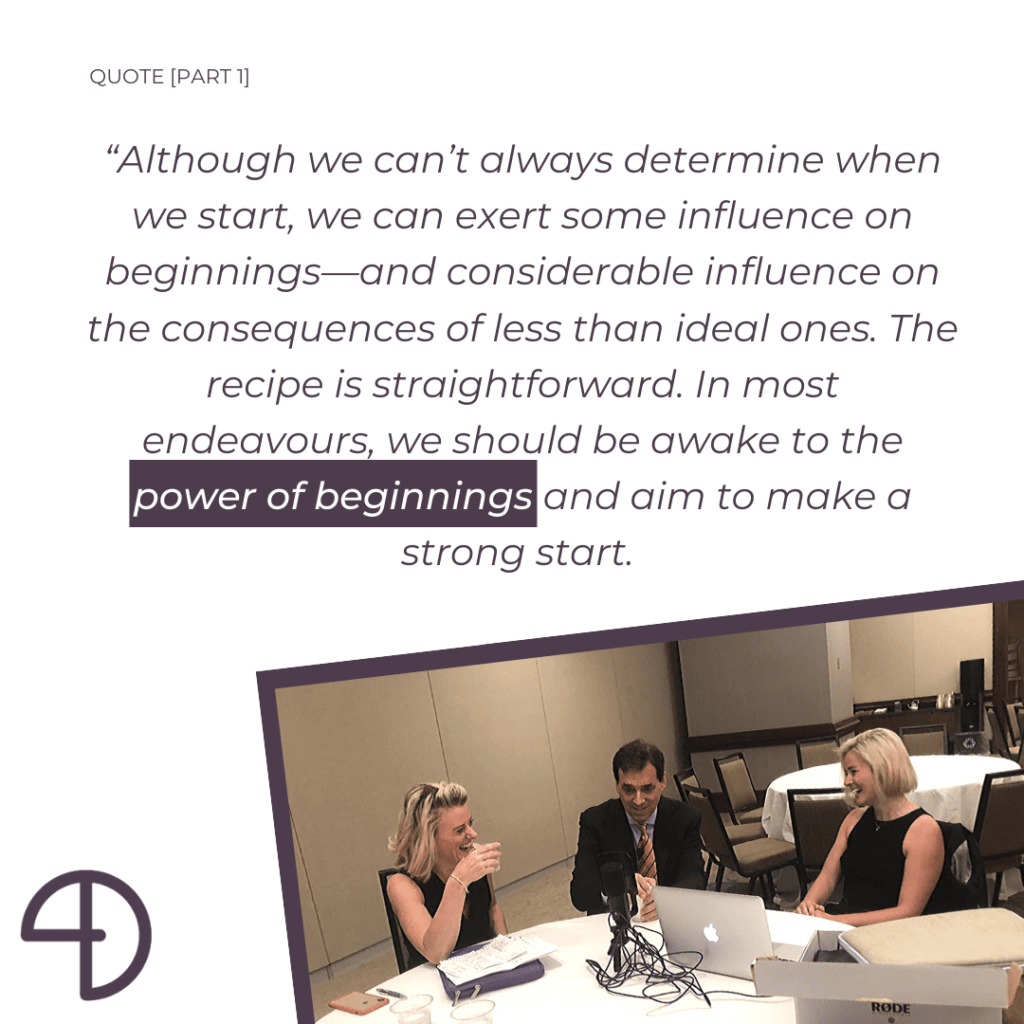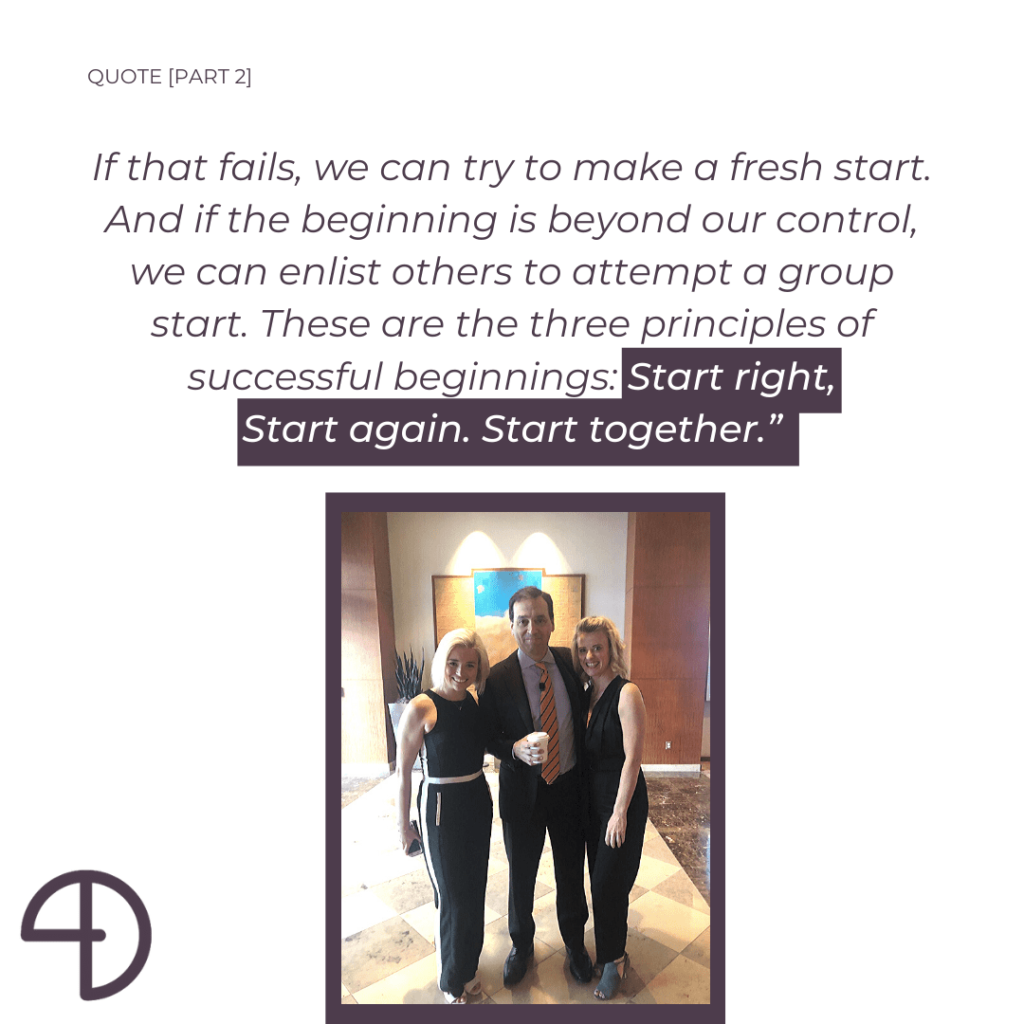Why new beginnings bring new energy to life
In this article, 4D’s Matt Beresford is exploring the power of Fresh Starts. Why do beginnings have more energy, than ‘middles’ and ‘ends’? And how might we capture some of this fresh start energy, wherever we are in our careers or relationships? Fresh starts and fresh approaches can help us to see our lives in a whole new way. What might you discover, if you start something new, or step in, as if for the first time?
Join Matt as he begins again…
Spring has always had a special place in my heart. For many of us, the longer, warmer days that follow Winter bring a sense of anticipation for the seasons to come and a promise of sunshine, colour and harvest. I am also a keen gardener, so after the enforced rest of Winter, I always find myself keen to get back into the garden, planting and sowing for the year ahead.
Plants aside – my birthday is also on the 20th March, and often coincides with the first day of Spring. So there’s always a lot to celebrate! And this year there’s been an additional fresh start to celebrate as I finally took the leap from a career in the IT industry to a vocation working full time with the team at 4D Human Being. I am hugely excited about the harvest we will reap in the months and years ahead as we grow the business and continue to develop ourselves, our work and the impact we have on the lives of those we work with.
Of course, at forty-four, this is also a step I make with some trepidation!
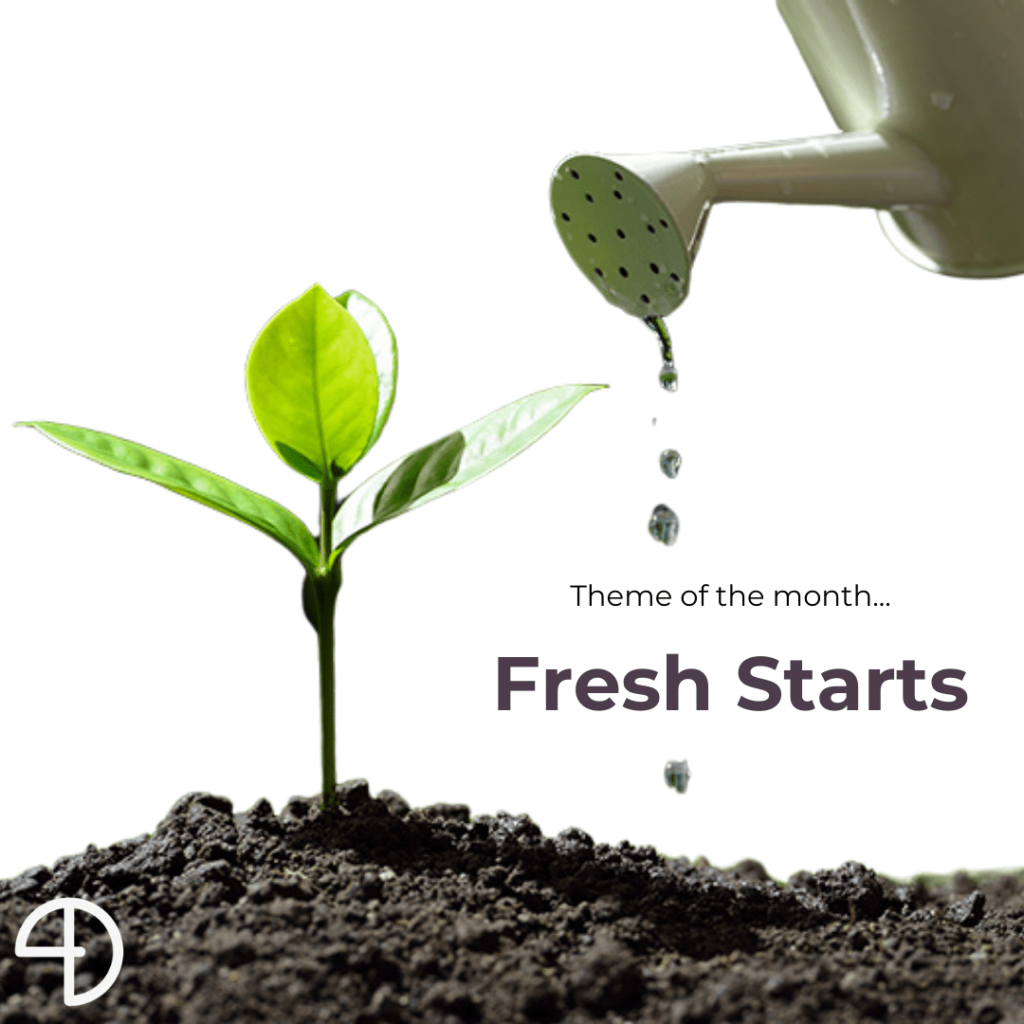
The Second Mountain
Whilst I have been planning this career move for some time, I was fortunate to have the opportunity to make the ‘leap’ this year. As I may have only 21 further springs in my working life (!), I’d like each of them to be spent in pursuit of something that I deeply care about rather than a career which ‘pays the bills’.
David Brooks’ recent book ‘The Second Mountain’ concerns itself, amongst other things, with exactly this challenge:
“Some people get to the top of that first mountain, taste success, and find it … unsatisfying. “Is this all there is?” they wonder…At this point, people realise, Oh, that first mountain wasn’t my mountain after all. There’s another, bigger mountain out there that is actually my mountain. The second mountain is not the opposite of the first mountain. To climb it doesn’t mean rejecting the first mountain. It’s the journey after it. It’s the more generous and satisfying phase of life.”
This is where I had been for some time – enjoying the people aspects of my role in the IT industry more than anything else. Through my time managing Google for Tech Data, I found myself increasingly interested in finding ways to connect it to the people who would be impacted by the technology that I was promoting – the schools and businesses I believed would become better connected, more collaborative and more creative by using Google Chrome.

For Brooks, that’s a crucial way to tell whether you are looking to start climbing your Second Mountain. “Where is your ultimate appeal? To self, or to something outside of self?”
Many of us, of course, also have substantial responsibilities that we cannot simply drop to follow a dream – we have mortgages to pay and families to provide for. I certainly still want nice things, nice wine, holidays, trips to the theatre…
So, the Second Mountain could be a major change, the banker who is now a teacher, for example, but it needn’t be – for many of us it may be a shift in emphasis:
“Still others stay in their same jobs but are transformed. It’s not about self anymore. If they work in a company, they no longer see themselves as managers but as mentors; their energies are devoted to helping others get better. They want their organisations to be thick places, where people find purpose, and not thin places, where people come just to draw a salary. “
Transformation through Work
One of the challenges of making ‘big step changes’, like a change in career, is that it will inevitably change you as well. My new role will require a new routine and will see me primarily working from home and interacting with different people. And that will transform me too – perhaps quite dramatically.
“Never underestimate the power of the environment you work in to gradually transform who you are. When you choose to work at a certain company, you are turning yourself into the sort of person who works in that company. That’s great if the culture of McKinsey or General Mills satisfies your very soul. But if it doesn’t, there will be some little piece of yourself that will go unfed and get hungrier and hungrier.”
Martin Luther King, Jr., once advised that your work should have length—something you get better at over a lifetime. It should have breadth—it should touch many other people. And it should have height—it should put you in service to some ideal and satisfy the soul’s yearning for righteousness.
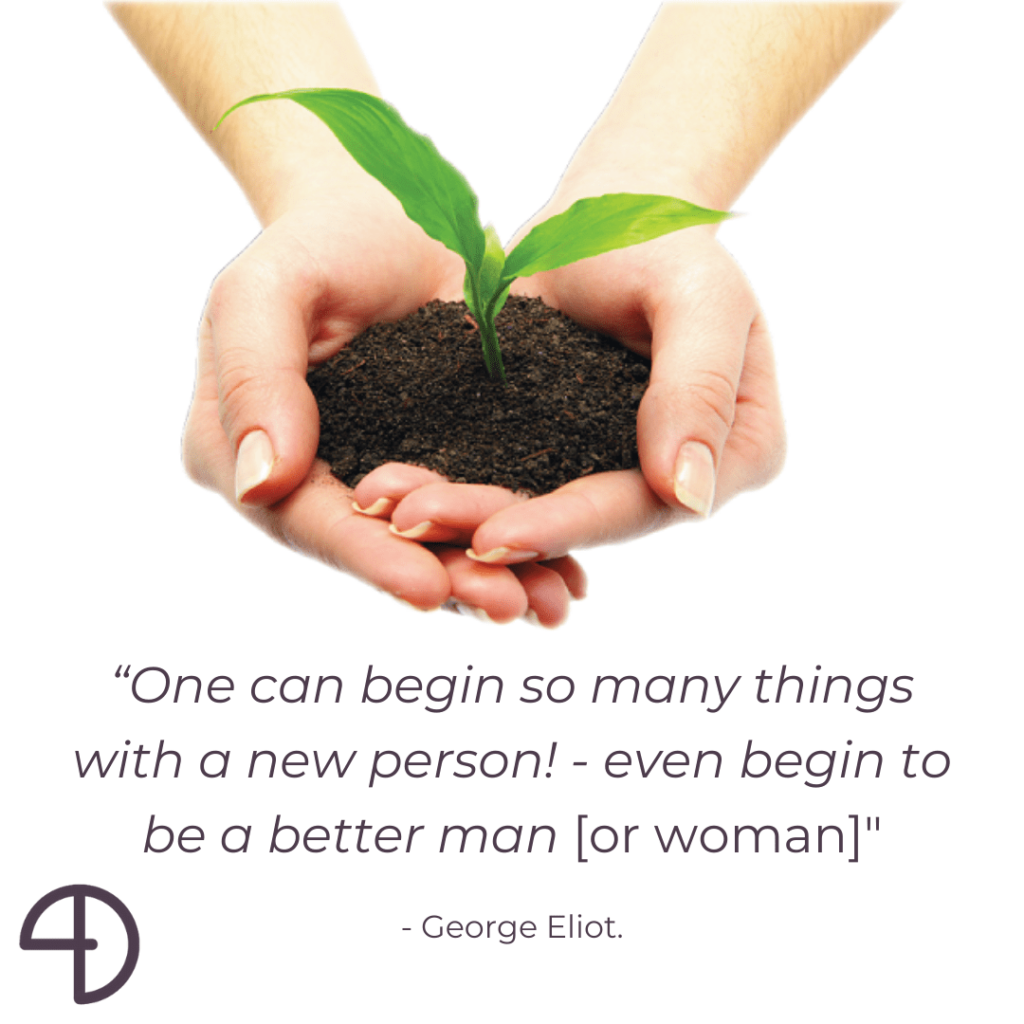
Your obvious is your talent
If you have been feeling this tug towards another path it’s worth asking, ‘What are your unique set of skills?’ For me, it was years of directing and performing in theatre, twenty years of business experience, a lot of energy, a love of learning and wide, eclectic interests. You will have a set of skills that might build into an offering that is perfectly unique to you.
Scott Adams in ‘How to Fail at Almost Everything and Still Win Big’ says: “Failure always brings something valuable with it. I don’t let it leave until I extract that value. I have a long history of profiting from failure. My cartooning career, for example, is a direct result of failing to succeed in the corporate environment.” Adams likes to make the point that whilst he wasn’t great at any one particular thing – drawing, comedy, middle management – by combining the three he could create Dilbert, one of the best known and best-loved cartoons of the last twenty years.
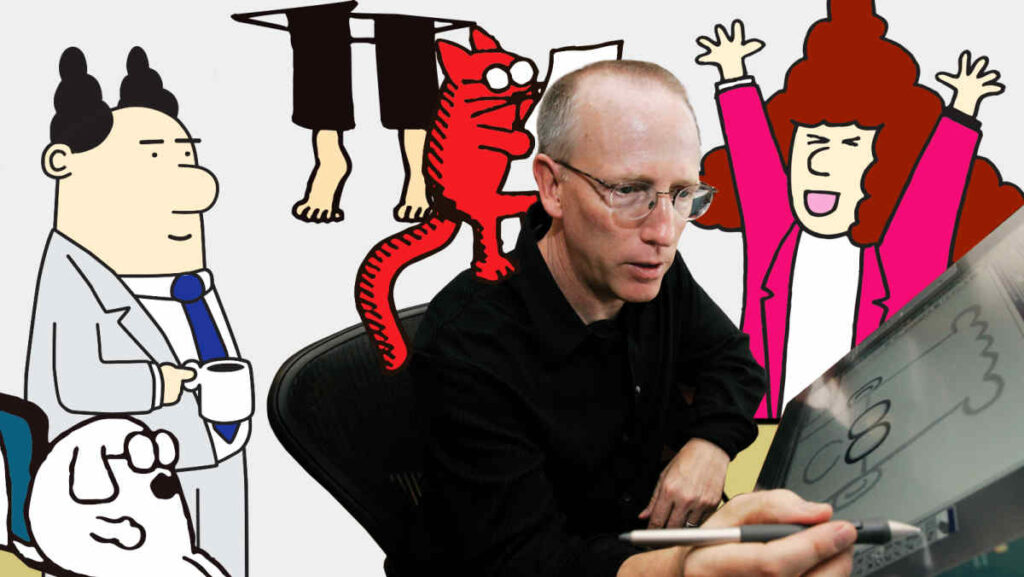
What is your portfolio of ‘failure’ from which you have learnt something? What set of skills, experiences and relationships are unique to you and that can help you identify the talents you might bring to your Second Mountain?
At 4D we like to say: “Your obvious is your talent” – a favourite saying of improvisation teacher Keith Johnstone. What seems to you to be the most simple and basic skill may be one that many others have to work very hard to emulate. This might be something as seemingly ‘obvious’ as powerful listening, being organised, or being able to host a dinner for customers. What do others value you for that you barely give a moment’s thought to and that, by doubling down on, might unlock new opportunities for you?
A System of Living
When making a fresh start it is tempting to set oneself lofty goals for what one wishes to achieve – the weight we will lose, the language we’ll learn or the money we’ll earn. The 4D2C model provides a great tool for thinking about communication, whether 1-1 or 1 to many, with a much broader lens than the one we normally bring. It can also be a way of thinking about one’s life and how to ‘be’ and ‘grow’ in all four dimensions. It provides a system of living, rather than a goal with an end destination.
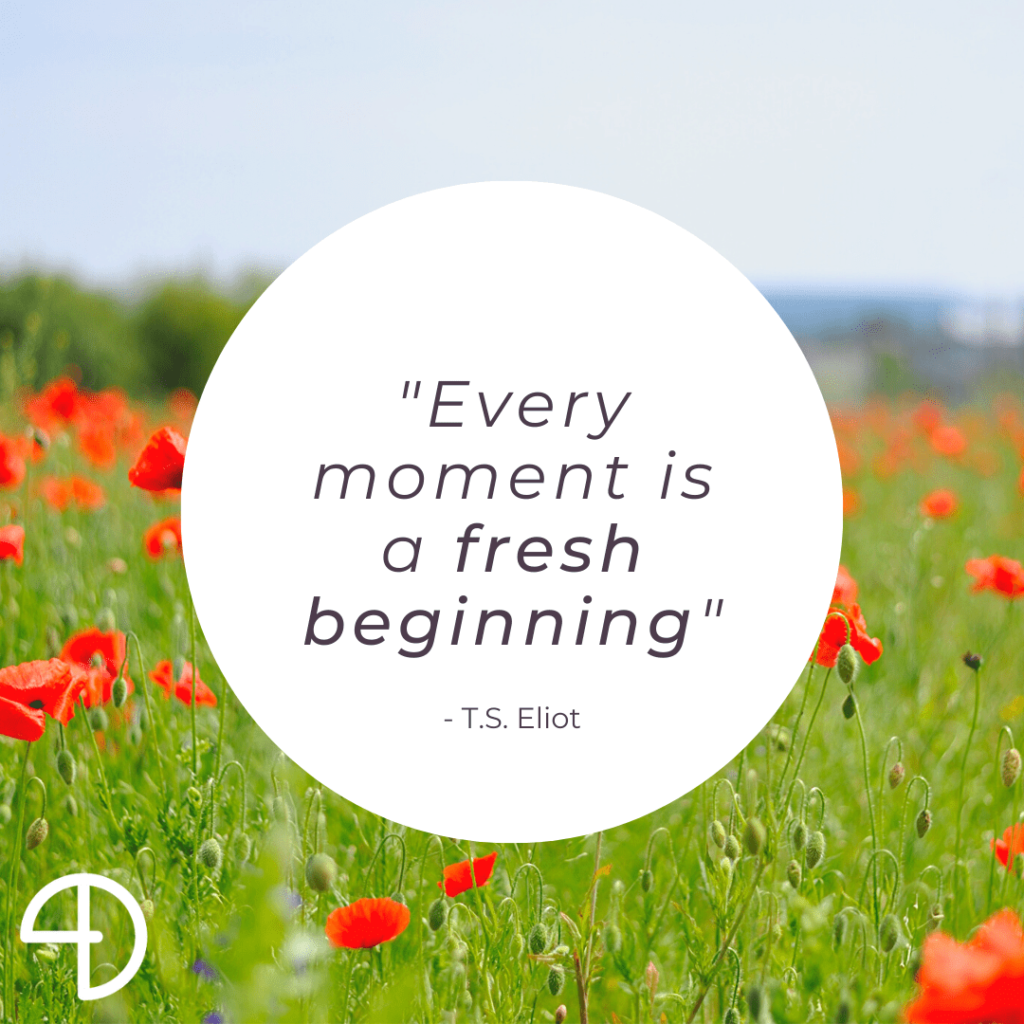
Instead of setting ourselves goals and being in a constant state of what Scott Adams calls “a state of continuous pre-success failure at best, and permanent failure at worst’ we can use the 4D2C ‘system’ to provide a way of committing to a set of behaviours or attitudes that we believe will provide success in a given endeavour.
We cannot control what is out there in the world, however as Adams says:
“Systems people succeed every time they apply their systems, in the sense that they did what they intended to do. The system-versus-goals model can be applied to most human endeavours. In the world of dieting, losing twenty pounds is a goal, but eating right is a system”
The 4D2C model provides a useful way of checking on how I am choosing to grow and behave, within what environment and with what people. It encourages us to ask questions like: is this an environment and culture within which I can learn, grow and create the kind of impact I want to have on the world? And will it allow my 4-dimensional self to develop and find creative expression?
When to Start
If you’re thinking of making a fresh start in your life, in whatever field, Daniel Pink’s recent book, ‘When’ provides some great ideas for starts (as well as middles and ends!)
“The recipe is straightforward. In most endeavours, we should be awake to the power of beginnings and aim to make a strong start. If that fails, we can try to make a fresh start.” Pink also celebrates what he calls Temporal Landmarks for making those starts:
“The first day of the year is what social scientists call a “temporal landmark.” Just as human beings rely on landmarks to navigate space—“To get to my house, turn left at the Shell station”—we also use landmarks to navigate time.”
First days of the year, month and week are commonly used for these Fresh Starts. Other landmarks are personal – say for example landmark birthdays and anniversaries. These dates “allowed people to open “new mental accounts” in the same way that a business closes the books at the end of one fiscal year and opens a fresh ledger for the new year.”
Spring Beginnings
Whether it’s dedicating your working life to a different vocation, training for an Ironman or learning a new language, as George Eliot said, “It is never too late to be who you were meant to be”.
So, do join me in embracing a Fresh Start this Spring. Whether big or small, it’s the ideal time to find a landmark and make a change that will move you closer to being who you were meant to be. If that also involves growing your first vegetables, I am happy to provide advice!





